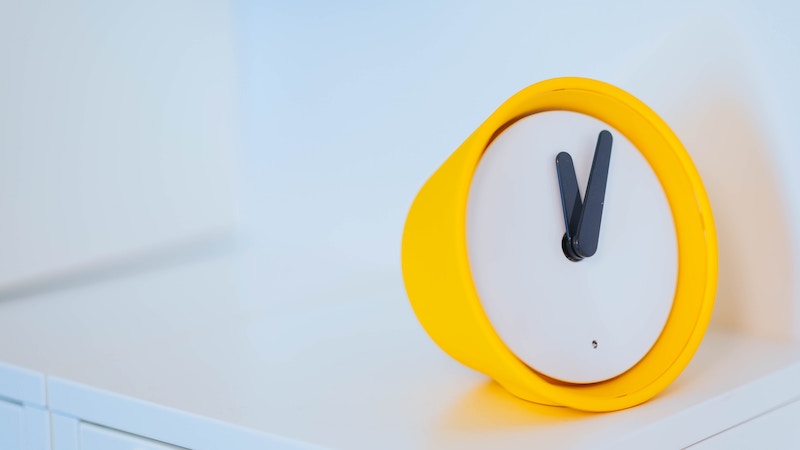Master Your Spontaneity: The Art Of Freeflow
Episode #8 of the course Master your time: The secret to being insanely productive by John Robin
Welcome to Day 8 of Master Your Time!
I hope after yesterday, you’re exploring the Reminders app or developing your own reminders system to free yourself of the demand from actionable tasks.
That said, you might have noticed that in doing this, it’s hard to draw the line on just how much you should be creating reminders for. After all, you don’t need a reminder to make your first cup of coffee or to shower in the morning.
Just how far do you have to go when structuring your life?
The Art of Freeflow
Using productivity science to get more done is a double-edged sword:
It eliminates much of the spontaneity and freedom that we enjoy when we don’t have obligations. Unfortunately, being more productive does require sacrifice.
But you have 80% of your time free to yourself!
Using this time effectively is important because for all the energy required to harness sharp focus, it’s just as important that you remain refreshed to avoid burnout.
Remember on Day 6, I gave you this exact ranking:
• First and foremost comes the 33.75 hours/week you are going to spend on focused work.
• After this, first and foremost will come your time to do whatever you want.
• After this, first and foremost will come commitments.
Pay attention to Priority #2: “After this, first and foremost will come your time to do whatever you want.”
In other words, taming commitments with the reminders app/system isn’t just about getting more done, it’s about giving us peace of mind for this large 80% space to feel FREE.
Enter the concept of freeflow.
You can think of this also in terms of meditation: Our directed awareness meditation formed the basis of the 25-minute focus we’ve honed so far in our work.
Freeflow involves developing an open awareness meditation mindset for the remainder of your day.
You can cultivate this open awareness in:
• your short breaks
• your long breaks
• the end of your day
• your weekend
For example, when it’s my evening, I have my reminder list always hovering, but instead of sitting down to tackle it, I sit down and enjoy a tea and stare into space. Whatever comes to mind, I do it. I might end up in the garden or doing my workout or taking a walk or playing piano or calling a friend. I might end up doing items on my reminders list or not, but whatever I do, it’s completely free.
Master Your Spontaneity
You can probably appreciate how cultivating freeflow is very much about cultivating spontaneity. Think of how you spend the remaining 80% of your time as having its own objective: allowing you rest and recovery to avoid burnout and to keep your mental engine going strong week after week.
In fact, not only will spending your remaining 80% allow you to go strong week after week, it will help you get stronger as the weeks progress.
Here are critical things you can do to harness your best spontaneity:
• Get over eight hours of sleep as often as you can.
• Always assess the value of what you spend your time doing.
• Forgive yourself if you don’t quite make 20%.
Getting your eight-plus hours of sleep allows you to experience full REM sleep (which only kicks in after the five-hour mark). This helps stabilize your mood, improve your concentration, enhance learning, and benefit decision making and other coordination tasks.
Doing high-value activities recharges your focus. You want your 80% freeflow time to be fun and full of the most exciting things you can look forward to. By doing this, you develop a process I like to call “up-shuffle”: continually abandoning less valuable activities for more valuable activities. For example, instead of sitting on my phone and checking Twitter, I go to the garage and put in another five-minute set of my workout for the week or play a piece on the piano.
And a caveat to all this is forgiveness. Twenty percent is the goal. Twenty percent is excellent. I strive for 20%.
But the reality is, we all have bad weeks. We make mistakes and try to learn from them. Ensure that you recharge and recover instead of push yourself artificially for results, only to feel angry, snappy, and dissatisfied.
Takeaway
Spontaneity is a key driver to help you recharge each week. You should spend the remaining 80% of your time in freeflow, tackling the reminders that have the highest value to you, but above all, be free and spontaneous to allow yourself to rest, recover, and retain your energy.
Your homework is to practice freeflow in your evening—the bonus is if you can tackle a few reminders.
Tomorrow, we’ll explore the 80/20 line further and how to raise the value of our 20% time as much as possible.
Recommended book
Wherever You Go, There You Are by Jon Kabat-Zinn
Share with friends

